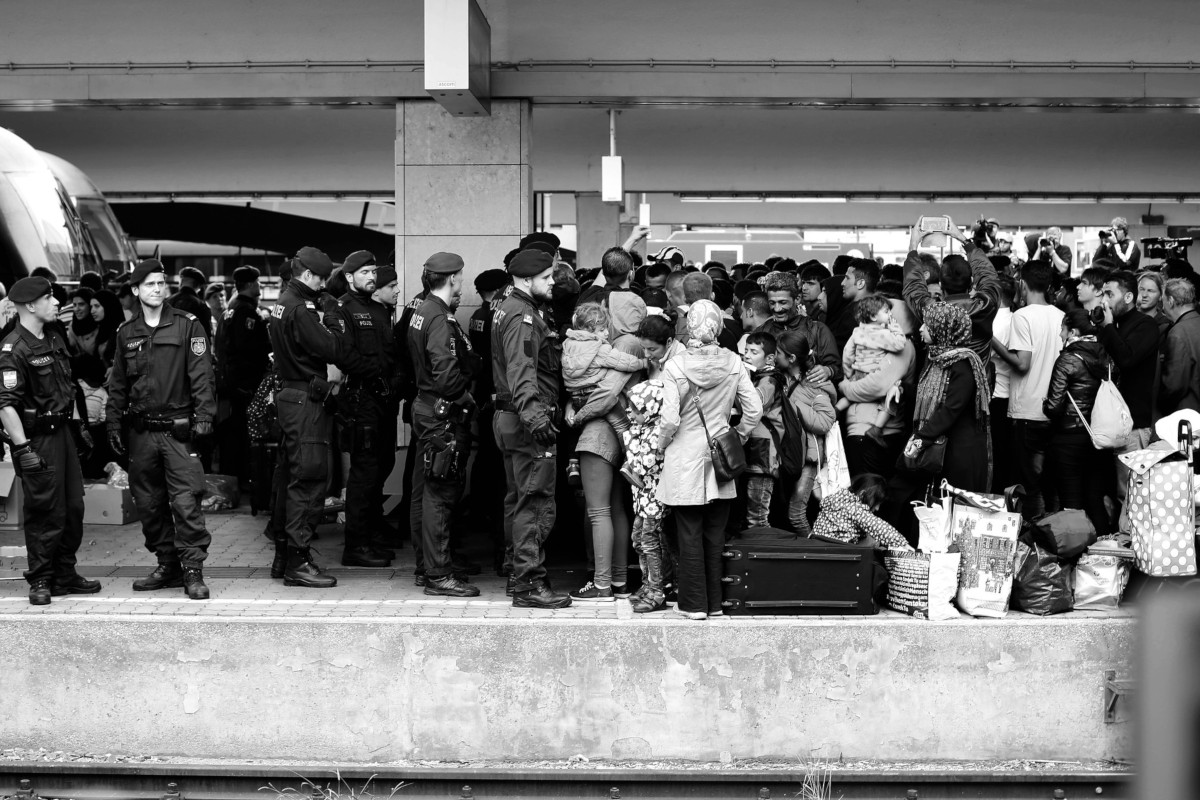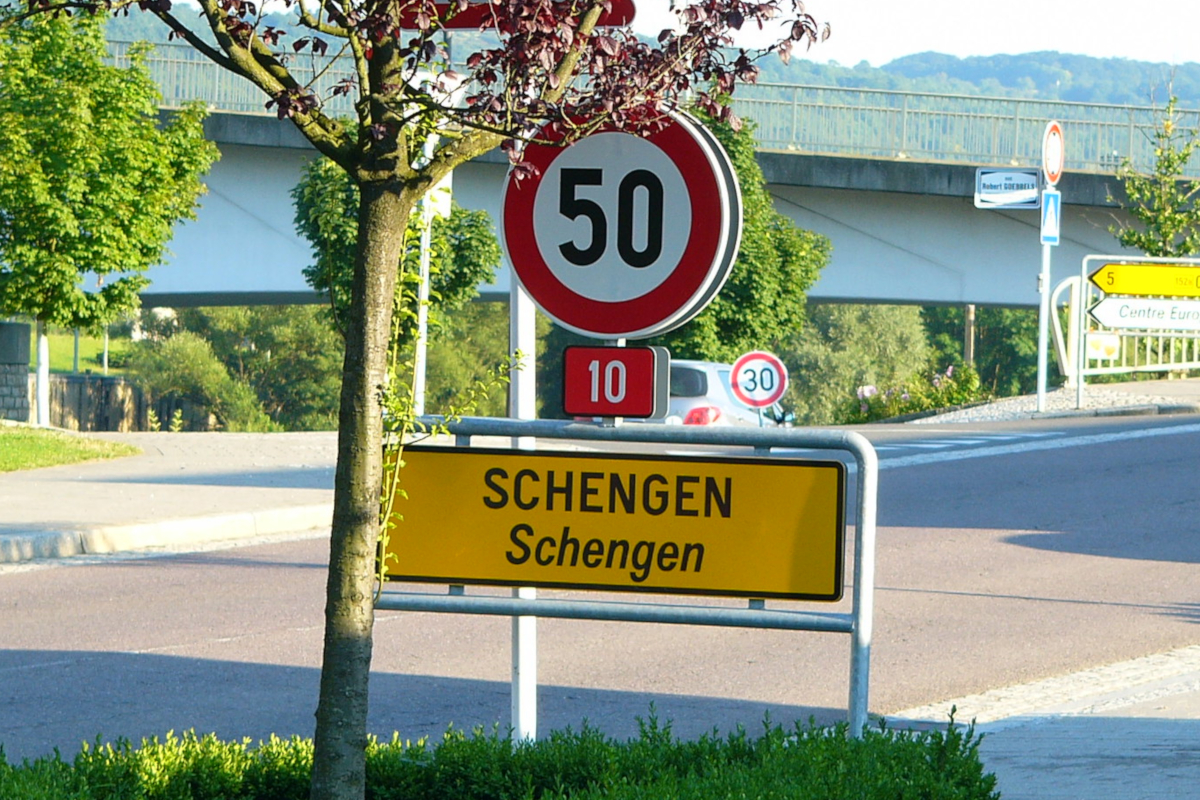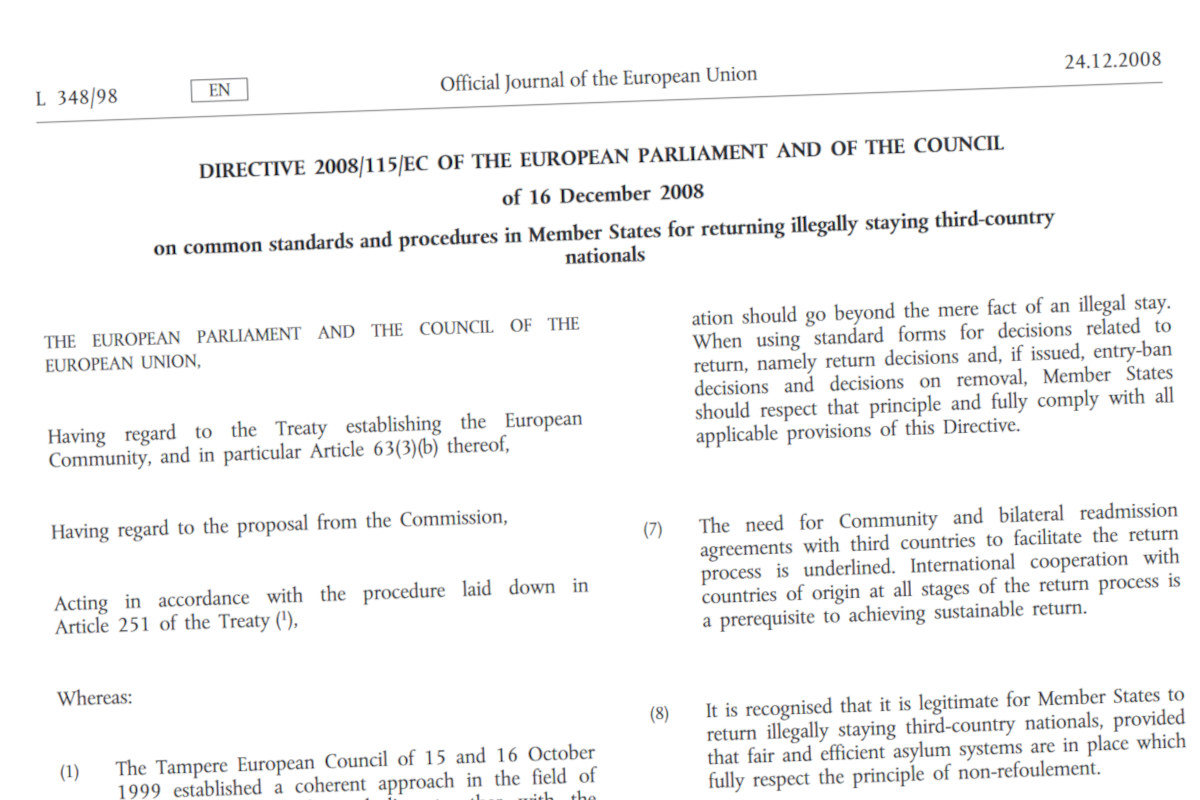EU: New migrant smuggling law to ensure criminalisation of solidarity
Topic
Country/Region
10 December 2024
Next week, a new EU law on the criminalisation of migrant smuggling will be examined by the Justice and Home Affairs (JHA) Council. The Council is due to approve its position for negotiations with the European Parliament. The existing law has been criticised for failing to prevent the criminalisation of migration and acts of solidarity with migrants and refugees. The new text, obtained by Statewatch and published here, appears likely to worsen the situation.
Support our work: become a Friend of Statewatch from as little as £1/€1 per month.

Image: mayu**, CC BY-NC-ND 2.0
Note: This analysis is primarily based on the Council's version of the text from 22 November 2024. A subsequent version, dated 29 November, was made public, with only minor changes compared to the predecessor.
Facilitators’ Package
The proposed law will replace rules from 2002, known as the Facilitators’ Package, that set down penalties for facilitating unauthorised entry, transit or residence in the EU.
The rules have been extensively criticized in recent years for failing to prevent the ongoing criminalisation of migrants, their families, and the activists and organizations that support them.
The Council’s likely position on the new law (22 November, pdf) fails to address calls for clear and mandatory exceptions to prosecution for acts of humanitarianism and solidarity. On the contrary, it may make such prosecutions more likely.
It is due to be approved by the JHA Council at its meeting on 13 December, following which it will be used by the Council in “trilogue” negotiations with the European Parliament.
Minimum harmonization
One key change in the most recent Council draft is an emphasis that the law only requires “minimum harmonization” between EU member state legal systems.
This means that member states “are free to adopt or maintain legislation providing for more extensive incrimination than that laid down in this Directive,” the text goes on to say.
While this is always the case for Directives, which do not apply directly in member state legal systems and require national laws to transpose them, the emphasis on allowing “more extensive incrimination” gives a green light to national authorities seeking to broaden the scope of criminalisation.
Financial or material benefit
In the Commission’s proposal, facilitating unauthorised entry, transit or residence in EU territory would only be a criminal offence if the perpetrator received “financial or material benefit.”
Previous Council drafts removed this wording, but the most recent version brings it back in, narrowing the boundaries of the offence and in principle excluding acts with an altruistic motive.
However, the definition (set out in article 3) not only includes cases where a benefit has been directly received. It also covers cases where:
“…the person who carries out the conduct requests, receives or accepts, directly or indirectly, a financial or material benefit, or a promise thereof, or carries out the conduct in order to obtain such a benefit.”
The definition of the criminal offence in the Council position now reads as follows:
“Member States shall ensure that intentionally assisting a third-country national to enter, or transit across, or stay within the territory of any Member State in breach of relevant Union law or the laws of the Member State concerned on the entry, transit and stay of third-country nationals constitutes a criminal offence where the person who carries out the conduct requests, receives or accepts, directly or indirectly, a financial or material benefit, or a promise thereof, or carries out the conduct, in order to obtain such a benefit.”
The Council draft also adds two new recitals, which make it explicit that Member States may adopt a broader definition of the facilitation offence in their national legislation – that is, they may exclude the “financial or material benefit” requirement.
“Recital 6
This is without prejudice to the way in which Member States deal in their national law with facilitation conducts for which an actual or a promised financial or material benefit is not a constituent element of the offence”.
Recital 6a
However, since this Directive is an instrument of minimum harmonisation, Member States are free to criminalise such conduct when no financial or another material benefit has been provided.”
While on the one hand states would not be obliged to prosecute acts considered as facilitation that were carried out due to altruistic motives, the Council's proposal does not impose any limit to member states' ability to criminalise, regardless of the motives or context of the action.
Flexible exemptions for people on the move
International law explicitly excludes punishing migrants “for the fact of having been the object of conduct” which is criminalised.
This was reflected in the Commission’s proposal and earlier Council drafts, which said: “Third-country nationals should not become criminally liable for having been the subject to… criminal offences.”
The Council position now only mentions this briefly, in one of the recitals. A separate recital allows member states to define the scope of the exemption in relation to national law:
“Recital 7a.
Without prejudice to rules of national law relating to unauthorised entry in the territory of the Member State concerned, third-country nationals should not become criminally liable for the sole fact of having been the subject to the criminal offence of facilitating the unauthorised entry, transit across, or stay within the territory of any Member State.”
Humanitarian clause and basic needs
The Commission's proposal did not include a humanitarian clause in the operative part of the text, while the Council draft circulated in May suggested a mandatory humanitarian clause.
This would have been included alongside other definitions in article 3, to “provide more clarity and legal certainty on the distinction between facilitation of irregular migration and humanitarian assistance,” said the Council draft.
However, there has evidently been disagreement on this point, with one Council document (pdf) noting that a “majority of frontline Member States seemed in favour of keeping the handling of exceptions based on humanitarian law, basic human needs, and sea rescue within national competence.” That is, such exceptions should not be covered by EU law.
This has been resolved by including the humanitarian clause in a recital, which is non-binding:
“Recital 7
Nothing in this Directive should be understood as criminalising, on the one hand, assistance provided to family members and, on the other hand, humanitarian assistance or the support of basic human needs provided to third-country nationals in compliance with legal obligations, including, where applicable, with international law.”
A note in the document says that this recital “should be read in light of recital 6a, which underlines that this Directive is an instrument of minimum harmonization: Member States are free to adopt or maintain legislation providing for a broader incrimination than what is set out in this Directive”.
The Council position continues to state (in recital 4) that:
“...nothing in this Directive should affect the rights, obligations and responsibilities of Member States and individuals to provide assistance to third-country nationals, for humanitarian reasons or aimed at meeting their basic human needs, under applicable international law.”
However, a more extensive definition of what “basic needs” are no longer features the definition text. Previous versions said:
“Meeting a person's basic needs means that their needs, such as food, personal hygiene and a place to stay, are met so that their physical or mental health is not impaired, or they are not put in a state of degradation incompatible with human dignity.”
Family members
As in the case of exemptions for people on the move, exemptions for their families appear only briefly in the recitals, and are different to the text circulated in May.
First, instead of stating that “assistance provided to a close family member to meet their basic human needs should not be criminalised,” the recital states: “Nothing in this Directive should be understood as requiring the criminalisation of assistance provided to close family members”.
One hand gives: the understanding of “assistance” is broadened by removing reference to “basic needs.” The other takes away: the prohibition on criminalising this assistance is weakened through the statement that it is not mandatory to criminalise (implying that member states could criminalise such behaviour if they wished).
Furthermore, the Council text now no longer features a requirement for states to take into account “the different particular circumstances of dependency and the special attention to be paid to the best interests of children.”
Penalties for natural persons
The penalties for natural persons set out in the Council's position are minimum maximums. in the words of the document dated 29 November, member states must ensure that the acts set out below are punishable by "a maximum term of imprisonment of at least [x] years."
This means that member states can impose higher maximum penalties, facilitating greater criminalisation.
|
Criminal offence |
Minimum maximum penalty for natural persons found guilty (years of imprisonment)
|
||
|
Commission proposal |
Council position May 2024 |
Council position November 2024 |
|
|
Facilitation of unauthorized entry, transit or residence (without financial or material benefit) |
- |
1 |
- |
|
Facilitation of unauthorized entry, transit or residence (with financial or material benefit) |
3 |
3 |
3 |
|
Aggravating circumstances |
|||
|
Committed within the framework of a criminal organisation |
10 |
8 |
8 |
|
Seriously endangering the life of third-country nationals subject to the criminal offence |
|||
|
Committed by use of serious violence against the third-country nationals subject to the criminal offence |
|||
|
When third-country nationals subjected to the criminal offence were particularly vulnerable (e.g. unaccompanied minors) |
|||
|
Causing death |
15 |
10 |
10 |
Author: Inés Marco, activist and researcher on migration
Note: This article was edited to add further clarity in the final sub-section, to explain that the penalties set out are "minimum maximums."
Documentation
- 15916/24: Proposed general approach (22 November 2024, pdf)
- REV 1: Revised proposed general approach (29 November 2024, pdf)
- 14633/24: Text as revised by the Presidency following the COPEN meeting on 9 October 2024 and the bilateral meetings on 14, 15 and 16 October 2024 (21 October 2024, pdf)
- 14609/24: Drafting suggestions and comments by Member States and Schengen Associated States (18 October 2024, pdf)
- 14385/24: Text as revised by the Presidency following the COPEN meeting on 9 October 2024 (11 October 2024, pdf)
- 13799/24: Presidency discussion paper with a revised text (2 October 2024, pdf)
Our work is only possible with your support.
Become a Friend of Statewatch from as little as £1/€1 per month.
Further reading

EU: Council lowers threshold for migrant smuggling prosecutions
EU institutions are discussing proposed changes to the law criminalising the facilitation of irregular migration, which has also been used to criminalise migrants and individuals acting in solidarity with them. The Belgian Council presidency presented a revised draft to other EU member states at the end of May, which would simplify the criminalisation of irregular entry, amongst other things. The draft will serve as the basis for further discussions within the Council, with Hungary now in the presidency role until the end of this year.

EU gears up for renewed crackdown on migrant smuggling
At the Schengen Council meeting on 19 October, ministers will discuss how to ramp up the EU's repressive measures against migrant smuggling and decide on "actions, commitments and sustainable solutions." A draft paper from the Spanish Council Presidency gives an indication of the plans that are in the works.

EU: More surveillance, funding and operational cooperation to fight migrant smuggling
A Spanish presidency note to member state representatives in the Council identifies cross-border organised crime as a key threat to the correct functioning of the Schengen area, calling for additional impetus in 2023-2024 to fight “cross-border, serious and organised crime”. Crimes involving smuggling and exploitation (including of children, trafficking, sexual exploitation) are deemed challenges for external border management and the Schengen area.
Spotted an error? If you've spotted a problem with this page, just click once to let us know.
